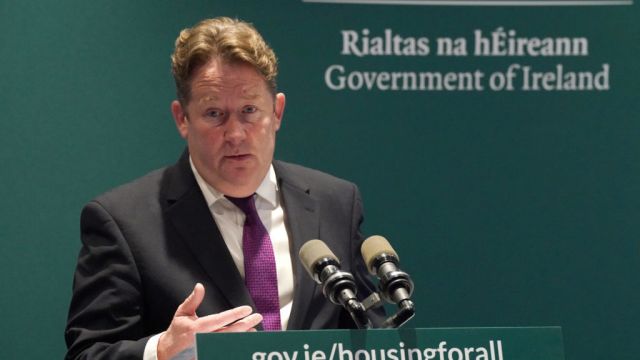Officials in the Department of Housing are reportedly working on a new scheme to promote the construction of cost-rental properties.
Here's everything you need to know about what changes are expected to be announced.
What is cost-rental?
Cost-rental housing provides properties to rent at 25 per cent below the area's market rate.
The properties are managed by approved housing bodies, local authorities and the Land Development Agency.
These tenancies are aimed at people who cannot afford to rent at regular market prices. Therefore, to be eligible for a cost-rental property, your household's income must be below a certain threshold.
However, you must also illustrate your ability to pay the reduced-rate rent, that you do not have suitable alternative accommodation and that your current accommodation is unsuitable.
What is the plan?
It is understood officials are set to announce millions of Euro in funding to incentivise the construction of properties, as soaring costs driven by inflation have impacted output.
According to the Central Statistics Office (CSO), activity in the building sector last year continued to be below pre-pandemic levels, with production volumes in the residential sector falling by 36.5 per cent between 2019 and 2022.
The new measures seek to reduce the inflation-related costs for developers, encouraging them to ramp up the number of properties being added to the market. Particular incentives are expected to be offered for those who commit to build affordable or cost-rental properties.
As the Irish Independent reported earlier this week, the plans are expected to include a 'Cost Rental Subvention Scheme', which will provide funding of up to €150,000 per building.
It is believed the scheme's budget will be in the region of €500 million to €750 million, covering approximately 3,000-5,000 units, and will run for five years.
According to Davy, the plan will also cover acquisitions of properties for cost-rental schemes, which they said will help local authorities and approved housing bodies "overcome viability problems".
How will this help?
The current issues in the housing market, both for those renting and looking to buy, are largely due to the lack of supply.
When there are a lot of people looking to rent when there is not a sufficient supply of rental properties, rents will go up, causing an issue for affordability.
In this regard, measures which succeed in increasing the number of rental properties in the market could help alleviated the current shortages.
This is particularly true for cost-rental properties, as the schemes ensure the tenancies will be more affordable and offered to those who otherwise would not be able to afford to rent.
Despite the perceived positives, Davy highlighted the low uptake of the Croí Cónaithe scheme, which also aims to incentivise the construction of homes by offering a subsidy up to €140,000 per unit.
However, they added that the subsidy only covers build-to-sell developments, and the "lack of forward funding provided by the fund" and low demand among individual homebuyers for apartments has likely hampered its uptake.
Will any other measures be announced?
Grants for those wishing to renovate vacant homes are to be increased under new housing plans to go before cabinet on Tuesday, according to Minister for Housing Darragh O'Brien, who was speaking at the Fianna Fáil Housing for All conference in Dublin on Saturday.
The current grant for vacant property renovation is €30,000, with a grant of up to €50,000 for a derelict property.
The Government is also understood to be considering temporarily scrapping development fees and subsidising construction of affordable rental apartments.
When will it be announced?
An announcement from Mr O'Brien is expected soon, perhaps in the coming days.
After weeks of criticism over the Government's decision to allow the eviction ban to lapse at the end of March, the Coalition is looking to show action on housing.
It also comes after figures showed approximately €1.52 billion of the Department of Housing's capital budget went unspent between 2020 and 2022, just over €1 billion of which had been allocated for social and affordable housing.







